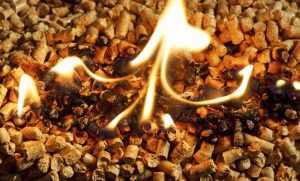Biomass producers are ‘marking their own homework’, according to parliamentary report

In a report analysing government support for biomass, it raised concerns that the certification schemes aiming to prove that UK-utilised biomass is sustainably source are not rigorous enough.
Some £22 billion of government support has been provided to businesses and households using biomass for fuel since 2022, including £6.5 billion for biggest single recipient - Drax.
Biomass is seen by government as a low-carbon alternative to fossil fuels provided it’s sustainably sourced, and when used in combination with carbon capture and storage technology (BECCS) , it is seen as essential to the achievement of net zero for the UK.
However, questions and concerns have been raised around biomass causing significant environmental harm and whether it can genuinely be considered a low-carbon fuel.
The PAC’s report found that government has for too long relied on an untested approach to make sure biomass generators are meeting sustainability criteria in return for receiving financial support.
Current arrangements rely heavily on self-reporting and third-party schemes, and neither the Department for Energy Security and Net Zero (DESNZ) or regulator Ofgem know whether this is effective in ensuring biomass’ sustainability.
The report recommends that, if BECCS is no longer considered to be viable, DESNZ should put in place robust contingency plans setting out how it will achieve the net carbon removals it requires and what the future of biomass will be.
BECCS deployment has been repeatedly delayed, despite remaining a key part of decarbonisation plans.
Government has yet to settle on a target date for the UK’s first BECCS plant, which will not be achieved by the original target of 2030, and there are no BECCS projects in the first phase of the government’s carbon capture, usage and storage programme.
In 2023 the government committed to strengthening sustainability rules to specify that 100% of woody biomass should be sustainable rather than the current 70% - but DESNZ has not made clear how this will work in practice.
It did acknowledge to the PAC that an increase in resources to monitor compliance may be required, as indicated by Ofgem’s recent investigation into Drax.
Significant public concerns were raised in relation to the findings of the KPMG review commissioned by Drax into its Canadian supply chain processes and reporting practices, and the PAC recommends Drax provide it the full report for Parliamentary scrutiny.
Heads of terms for a new support package were announced for Drax in February 2025. The report identifies risks that the provisional new deal may not provide good value for money.
Under the deal, Drax will only be supported to operate less than half the time it currently is, saving each household an estimated c.£6/yr.
DESNZ expects the agreement to reduce the amount of subsidy that Drax receives each year by £170 million compared to the alternative of procuring gas and includes a claw-back provision for profits over a certain level.
The new agreement also insists on all Drax’s biomass coming from 100% sustainable sources.
Under the provisional new deal – which lacks any element of competition – Drax will receive a higher unit price than other renewable generators.
The report calls for DESNZ to consider how it can update the agreement to prompt Drax to begin transitioning to BECCS.
Sir Geoffrey Clifton-Brown MP, Chair of the Committee, said: “Billions upon billions of government support has been provided to the biomass sector over the past two decades. Rather than taking it on faith that the woody biomass burnt for energy is a sustainably sourced low-carbon alternative fuel, it is long past time a true assay was made of what taxpayers are getting for their money. Our report also raises further questions around what role will be played by BECCS, long-viewed as crucial for net zero but with no movement visible on the horizon to start to build it into the UK’s infrastructure.
“In light of the continuing concerns raised around biomass highlighted by our written evidence, gaining full confidence around the sector’s supply chains is work that must be carried out if government is to truly satisfy itself that biomass is not a white elephant. All are agreed that further monitoring of the sustainability of biomass will require government to devote more resources to the problem. This was demonstrated by Ofgem’s recent own investigation into Drax. We hope that Drax will agree with the need for Parliamentary scrutiny of the findings of the review into its supply chain and reporting practices, and to supply this review to our Committee.
“Under current carbon accounting rules, CO2 emissions are accounted for in the current country of origin, not in the country that actually burns the biomass. This is an approach this Committee were extremely critical of in our report on carbon capture, usage and storage, and many members of the public will find this inexplicable.”


























